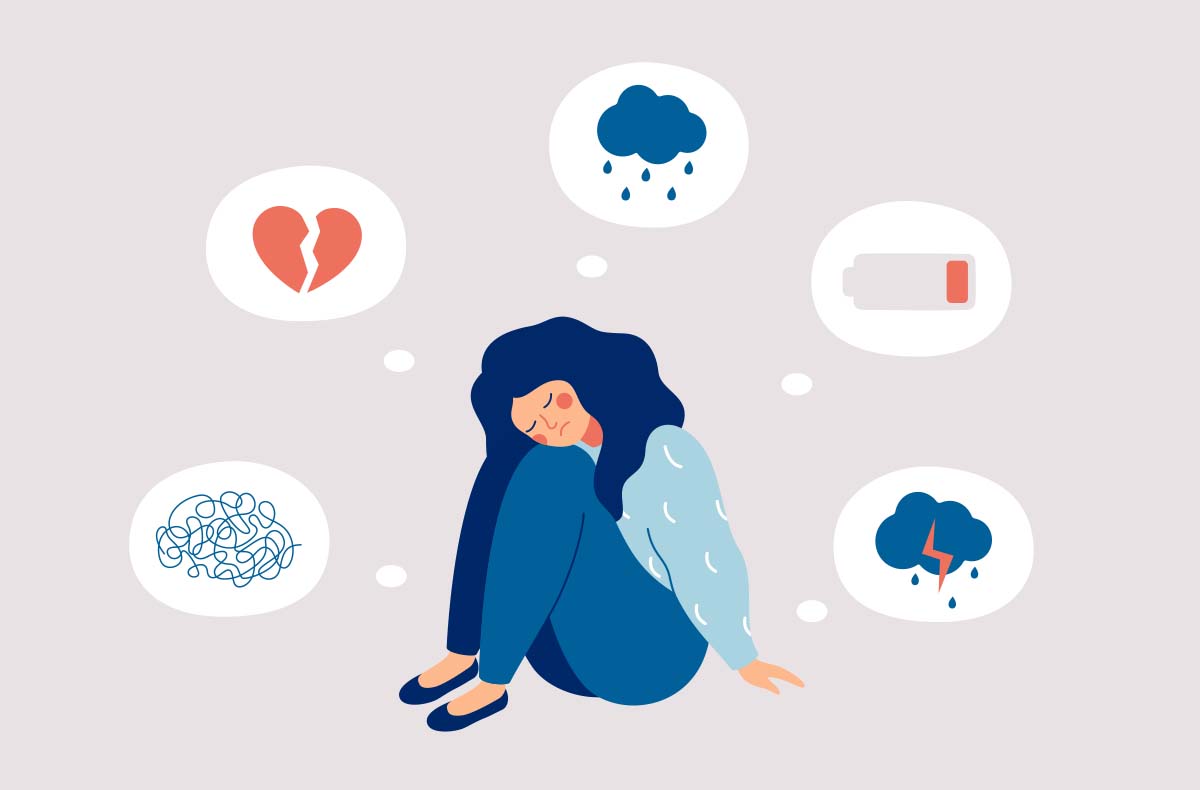
My relationship with my mental health has been a page-turner, to say the least. Each time I think I have all the answers, there is another plot twist and more pages to be discovered.
The reality is, there is never a “quick fix’” that sets you up for a free pass in anything. It’s the same when it comes to your mental health. The state of your mental health isn’t permanent: it evolves constantly; it undulates.
In this context, I would like to break down this subject and share my experiences by looking at different chapters of my ongoing mental health journey. By doing so, I hope to emphasise how we must change our discourse on mental health away from its binary nature of being either good or bad.
I view my mental health as the state of my mind, which impacts my overall being, feeling, and doing. It’s intertwined with everything I do and it’s up to me to take care of it, and the condition of my mental health is based on what I’m doing for it.
I’ll be the first to admit that the term “mental health” can be hard to articulate. Growing up I never heard the phrase “mental health” mentioned once. Not by my parents. Not by my teachers. Not by friends. Not in the media.
This was not the case, however, for physical health. My parents frequently talked about exercising and the importance of “staying fit.” At school, I found the same prioritisation. In the U.K., it’s compulsory for all schools in the U.K. to teach P.E. (physical education) for all pupils at every key stage, from age four to sixteen. Socially, the main topic of conversation with friends was what you looked like and what diet trend you were currently giving a go, and in the media, physical health was depicted as the ideal aesthetic.
I believe that the first signs of my mental health decline emerged as early as thirteen. I look back now and see a young girl who had just moved to the U.K. after growing up on a very small Mediterranean island who found life rather overwhelming. There is grief that comes with moving to a completely different country, a completely different culture, and a completely different education system. There is UK-specific research that shows that children who move home report poorer mental health than those who remain residentially stable. The research is far from sufficient to claim as gospel, but it’s food for thought for someone who has lived this very experience.
So, picture this: I’ve just turned thirteen, and right before my eyes, two worlds are colliding. I’ve just moved away from friends I’ve grown up with, from the only school I’ve only ever known and the only country I’ve ever known. The place where I’ve formed a sense of self now feels like a distant memory associated with a different place and time. I remember how I felt at the time. The only similar feeling I can liken it to is heartbreak. That tight, harsh, tense feeling in your chest that feels like it’s being gripped for dear life.
I felt lonely.
I felt empty.
I felt out of place.
I felt incredibly emotional.
I cried day after day to cope with the pain.
I look back and see an incredibly lost, sad, and angsty thirteen-year-old girl, and I just want to give her a hug, and some much-needed emotional tools.
At this point, I’d like to say that after getting knocked down, I got up again, but unfortunately that wasn’t the case. With zero capacity to manage my emotions and an ongoing feeling of loss, I got stuck in a blame game. My parents seemed to have managed the move. So, what was wrong with me? My immediate response was, “I can’t handle anything.” This critical inner voice only grew stronger and more believable.
I began acting out in school and ended up getting in trouble frequently. I really struggled to make friends, so I became the class clown, but all that gained me was detention and a false sense of validation.
My inability to make friends reinforced the message from that voice in my head, which told me I was the problem. Being so distracted in class led to my grades slipping, which again, was “totally my fault.” My school contacted my parents about my behaviour and grades, which further strengthened the voice in my head, proving that everyone was disappointed in me and that I couldn’t do anything right. When you have no support network, your critical self-talk feels inescapable. You shut down, close yourself off to people, and freeze your emotions to protect yourself. That’s exactly what I did.
At the tender age of thirteen, I felt resentful of the world I occupied. I felt slightly like my 90-year old grandma, who has seen so much of the world that she was always a little cynical. A 13-year-old shouldn’t be cynical about the world when they’re only just starting out.
So, where did this leave my mental health? I’ll give you the inside scoop, it only proceeded to get rockier as I got older.
Why?
Because I lacked mental health awareness, as did those around me.
I normalised that feeling really sad all the time was just “being a teenager.” That hating my body was just life, and used self-harm to bear that load. That being emotionally inept was the only way to deal with my feelings. That crying all the time was just because I missed my past so much.
I normalised not talking about anything, because that’s what everyone else around me did, and closing myself off to everyone, because I’d been taught by my parents that riding solo was the only way to go.
I accepted that I was supposed to feel all this hurt and pain myself and overcome it by myself. That my poor mental health was what everyone else was experiencing.
I thought that everyone woke up wanting to go back to sleep immediately, that everyone had suicidal thoughts, felt muted and sad most of the time, and tired all the time. I thought that everyone was terrified of socialising, that everyone struggled with their relationship with food and binged on 10,000 calories in one sitting, that everyone felt debilitatingly anxious.
I know that other people have also been on the same boat, but I was naïve to wholeheartedly believe that all of these feelings were “normal” and ergo inescapable. I realise now that I had very poor mental health. And I’ve learnt the hard way that not treating it has long-term implications. I realise now that my existence was in survival mode and the only way I can actually escape this is to tackle my mental health intentionally.
All of us are affected by mental health in different ways. The spectrum of mental health is wide, but we all have to learn to manage it, because sometimes when we least expect it, life happens, and it will have an impact on our mental health.

